Last night we watched an interesting movie about the Czech actress, Lída Baarová. It’s a fictional work based on the real life of the actress and her affair with the Nazi Party’s Reich Ministry of Public Enlightenment and Propaganda, Joseph Goebbels, which lasted from September 1936 until August 1938. It’s an interpretation of her life and affair, and not a story of exact facts.
In the film, the young and beautiful Prague born, Czech actress Lída Baarová, who is already famous at home is invited to the prestigious Babelsberg film studios (UFA) in Berlin in 1934.
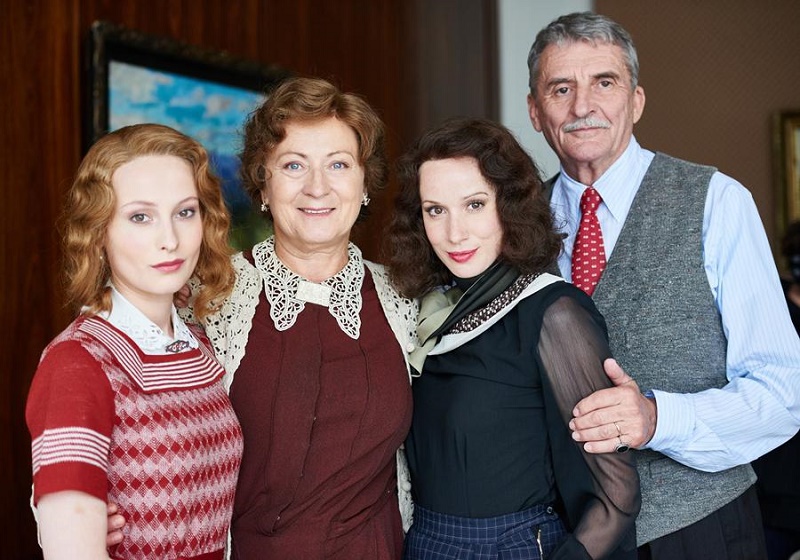
In reality, Lída Baarová (born Ludmila Babková in Prague, Austria-Hungary, in 1914) had the luck of having a mother who wanted her to be an actress and a very important friend, Miloš Havel, often referred to as the first Czech film magnate, founder of Lucernafilm, pre-war Czechoslovakia’s largest movie corporation and Barrandov Studios. If you recognize the name, he also happened to be the uncle of the late president Václav Havel.
In the film, the wonderful news is passed along for Lída. UFA, the top German film company, has hired her for a new movie. In reality, Baarová left Prague for Berlin after winning a contest at the UFA film studios for a role in the film Barkarola (Barcarole).
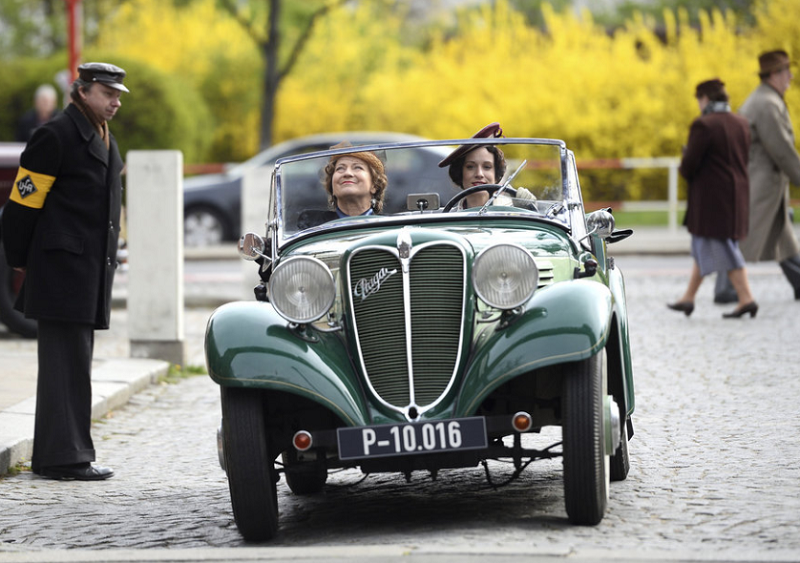
At the time, UFA studio is considered the “Hollywood of Europe” and she knows that this opportunity can provide a vehicle for her international stardom. She’s set to play in a film entitled Barkarola, with most popular leading man Gustav Fröhlich.
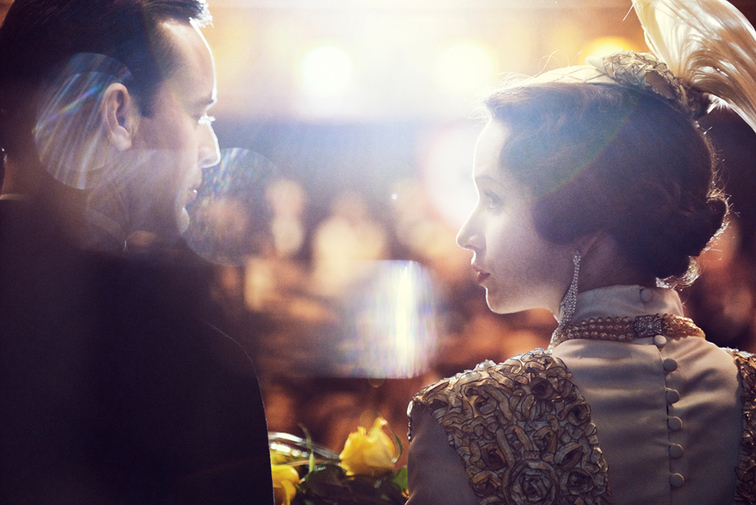
Photo: Julie Vrabelová
After some initial setbacks with her German pronunciation, she works with a voice coach and keeps the role.
In reality, her German became more “Berliner” than the German of 90% of people in Berlin.
Baarová’s articulation, singing, and dancing made the German filmmakers enthusiastic. In short, she enchanted the entire crew in the process.
On opening night, the crowds after hearing the applause of Reich Minister of Propaganda himself, Joseph Goebbels in the balcony, stand and cheer and the news of her newfound stardom in Germany quickly spreads. Goebbels was hugely powerful, he could intervene in every aspect of a film from deciding who would star, to what acts would and would not be included, to how the completed project would be received.
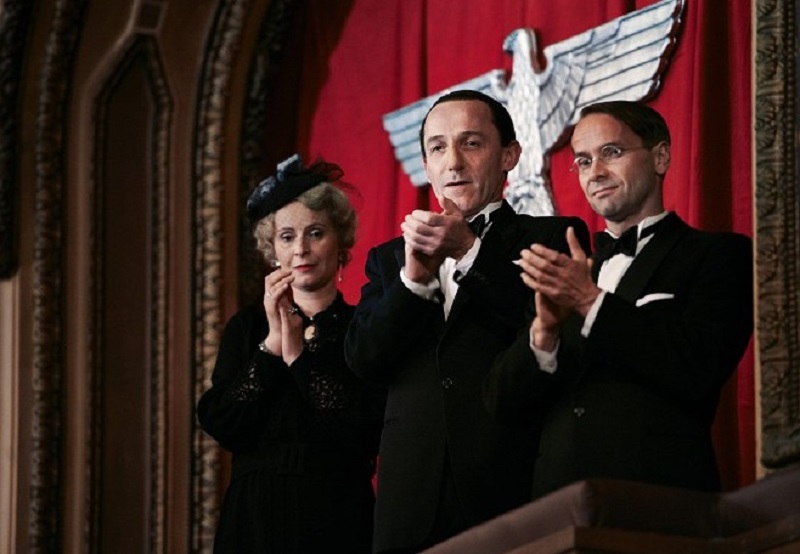
Photo: Julie Vrabelová
Soon she is on the front pages as one of the most beautiful women and most popular actresses in Europe. In 1934, no one could yet predict what horrors the Nazis would eventually spread over Germany and most of Europe, especially not Lída who was too busy with her newfound fame.
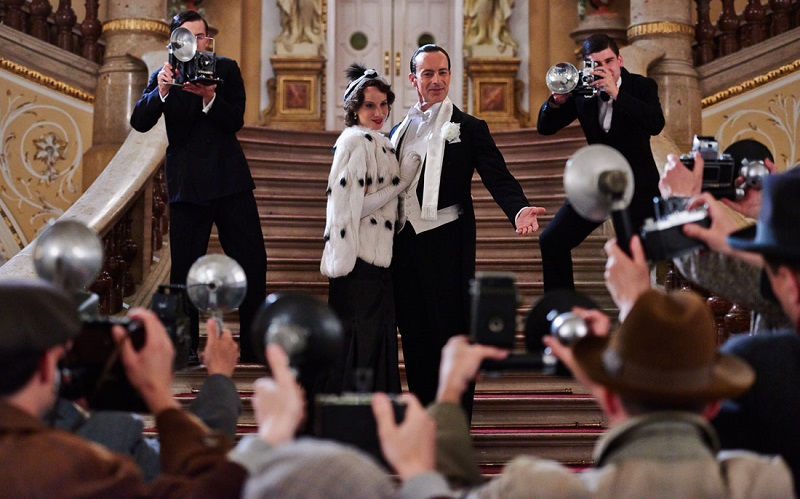
Photo: Julie Vrabelová
She was also focused on her romantic affair with the German leading man and idol of so many women, Gustav Fröhlich.
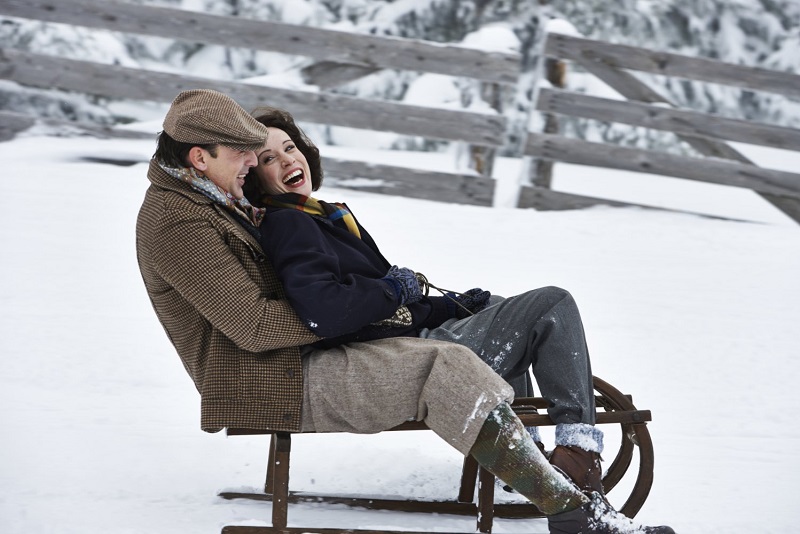
Photo: Julie Vrabelová
She and Fröhlich become lovers and eventually star together in several films.
But alas, Gustav was not the only one charmed by Lída’s beauty.
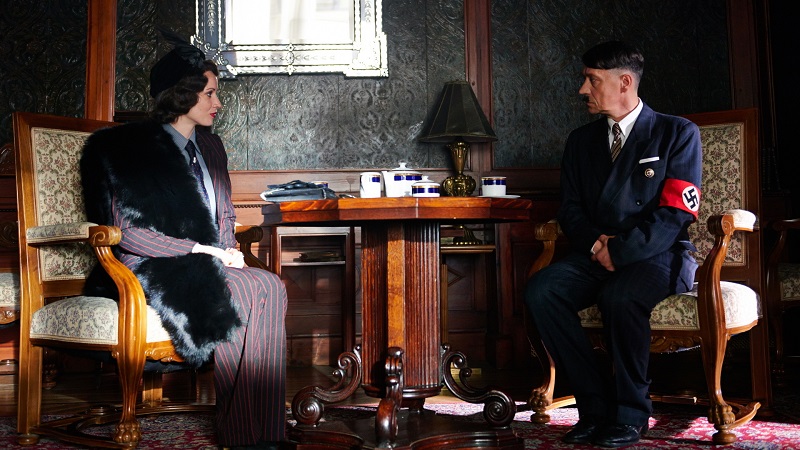
Photo: Julie Vrabelová
Despite his stated disapproval of the “inferior Slav”, even the Führer showed romantic interest in the actress. Hitler himself, after visiting the studios, unexpectedly invites Lída to a private tea with him at the Reich Chancellery.
She confesses to Gustav that she does not want to go, and he urges her that one does not say no to the Führer. In the meeting with Hitler, he confesses that she reminds him of someone once very dear to him and quickly leaves the room after touching her shoulder.
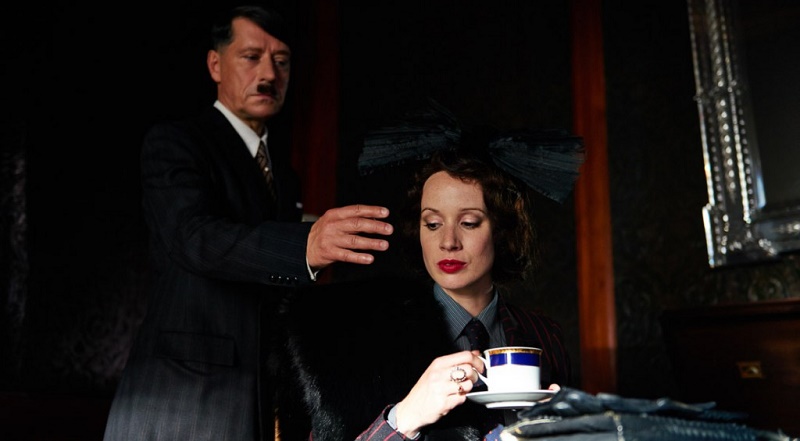
Photo: Julie Vrabelová
In reality, it is believed he referred to her similarity to Gerri Raubel, one of his ex-lovers, who had shot herself. Or perhaps it was Hitler’s former lover and half-niece, Angela Raubal, who was found dead in her Munich flat in 1931, aged 23, after allegedly shooting herself in the heart with a pistol. Either way, he said she reminded him of somebody both “beautiful and tragic” in his life.
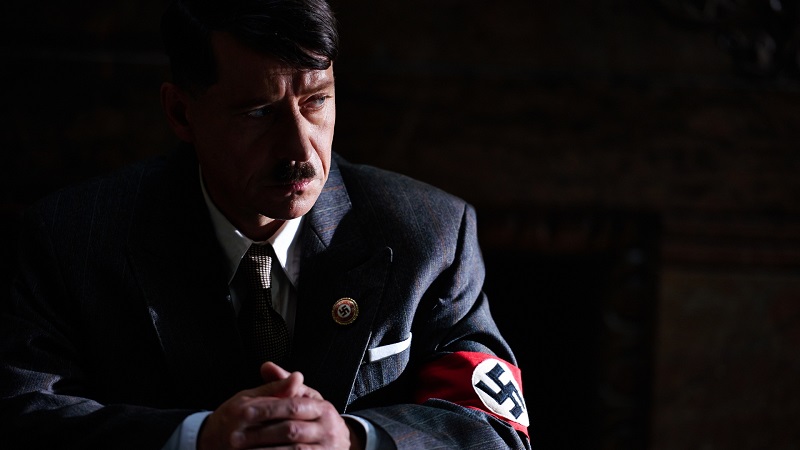
Photo: Julie Vrabelová
At another tea-time meeting, he tried to persuade her to renounce her Czechoslovak nationality. “But I told him ‘I like being a Czechoslovak citizen.’ ”
Hitler’s personal tea-time invitations stopped coming but the parts continued to line up for Ms. Baarová.
The film makes one believe that Hitler is responsible for her new car, coming through the studio, but in fact it’s believed that in fact her Praga was a payment from the car company, in exchange for starring in their short commercial (1934) entitled Baby. It’s said that she did not accept a BMW which Goebbels offered via the studio at the instigation of Hitler, and instead continued to drive her Praga-Baby.
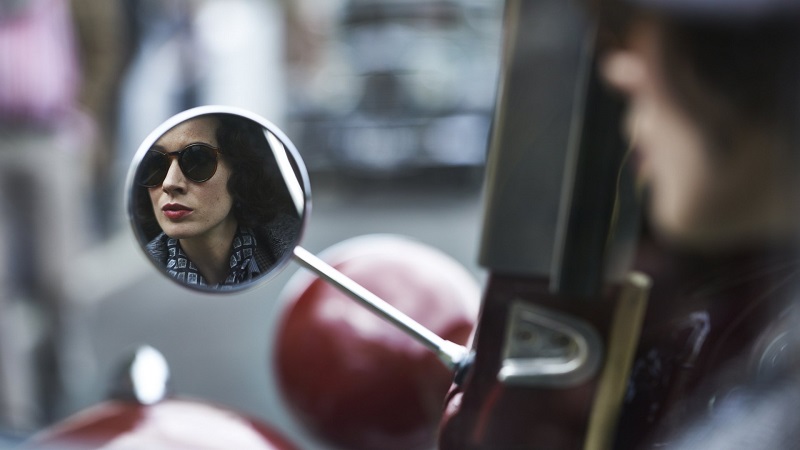
Photo: Julie Vrabelová
(By the way, Baby was a 3 minute promotional film clip for the Praga – Baby automobile. Lída Baarová drives the Praga – Baby out of the city and into nature, singing a song about the car, then she goes into the woods and picks violets. We later see her driving the car at high speed as the narration speaks of the features of the vehicle. Make sure to tune in soon to learn more about this car and watch the video, we’re working on that post now!)
In the film, it’s shiny, red, and what looks like a series of different vehicles depending upon the scene. (The trailer shows a BMW emblem on the front, similar to one on a 1937 Bmw 320 Cabriolet Classic. The side vents are common to a 1937 Praga Piccolo P-35, and the three layers at the top of the door panels make me believe it’s a 1939 Praga Alfa, but a few of the BMWs also had that look, especially the BMW 326 from 1938 that she is photographed with here.
In any case, it’s lovely!
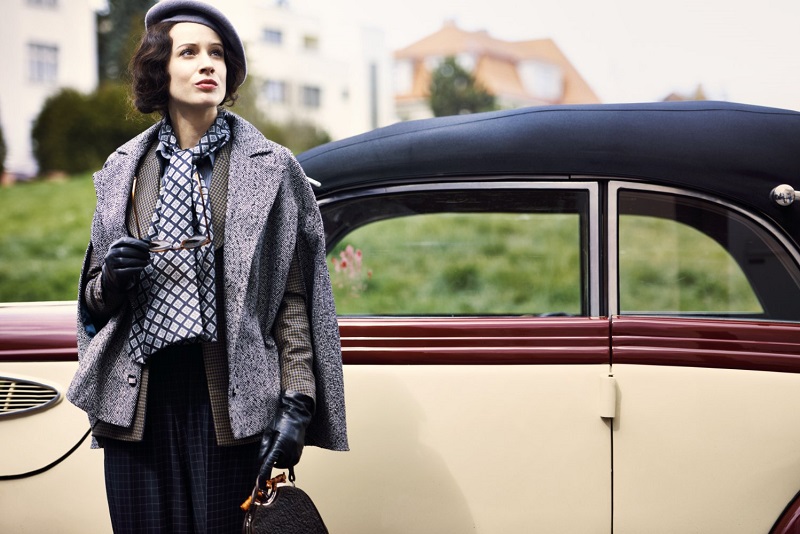
Photo: Julie Vrabelová
In the film, Lída and Gustav move in together even though he is married, his wife a “Hungarian Jew” who chooses to live in Hungary where she feels safer at the distance from Hitler’s hatred and prejudice.
In reality, Fröhlich was married to Hungarian opera and operetta star, and actress Gitta Alpár, with whom he had a child, Julika. Their marriage was dissolved in 1935 because Alpár was Jewish and the marriage was illegal in Nazi Germany. Alpár also appeared on “Hitler’s hit list”, along with Charlie Chaplin and others, in the pages of the anti-semitic book, Juden sehen Dich an by Johann von Leers. Gitta eventually fled to the United States, where she continued her singing and film career. She died in Los Angeles, California in 1991 and is buried at Westwood Memorial Park in Los Angeles.
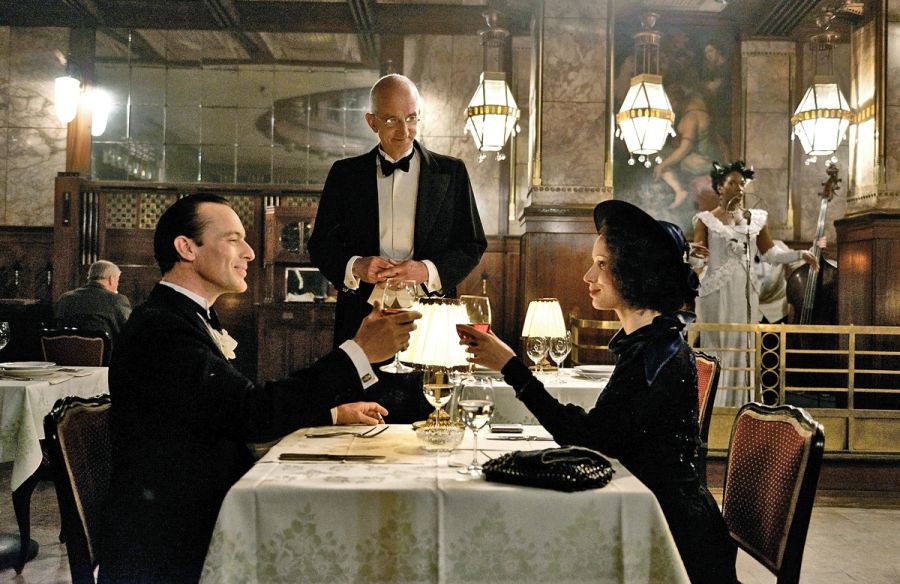
Photo: Julie Vrabelová
They have a prestigious address and a gorgeous villa on the picturesque Wannsee, and an interesting neighbor…
Only a stone’s throw (or three doors down) is the domicile of the Reich Minister of Propaganda himself, Joseph Goebbels. Goebbels visits the two of them and invites them to the lavish parties at his villas, parties for the artistic and political elite.
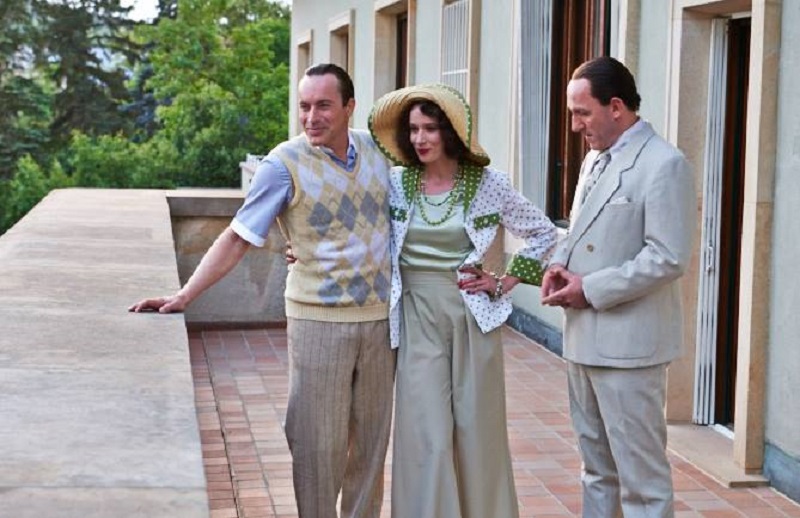
Fröhlich is jealous and Lída pleads that she’s not interested in the neighbor who’s taller but in real life was much shorter than her.
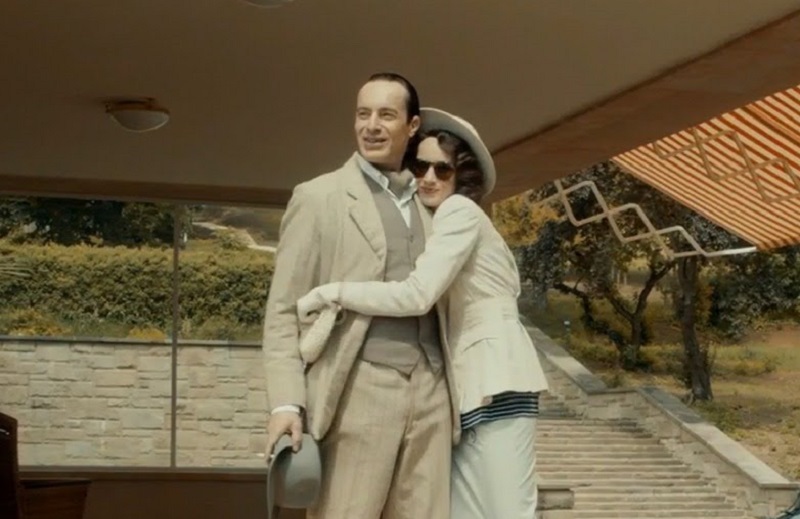
After one of Gustav’s many jealous outbursts, Lída has had enough and runs out into the rain and out of the gate, right into Goebbels’s car. What a coincidence he just happened to be driving by…
In reality, it’s been said that Goebbels was bewitched by her Slavic beauty and was constantly circling around her like a lovestruck teenager. He telephoned frequently (always presenting himself as Mr. Müller), invited her to movie premieres and to parties.
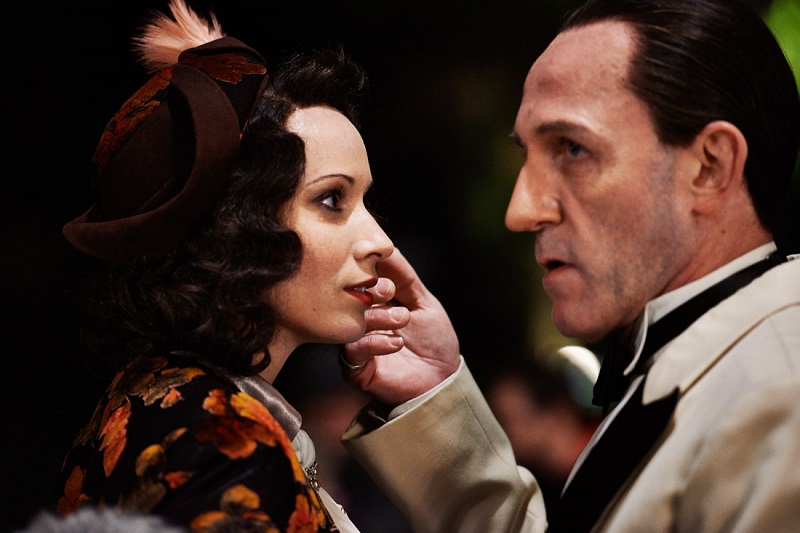
Photo: Julie Vrabelová
It was at one of these parties (in Sept. of 1936) that Baarová gave him an innocent kiss on the cheek. The minister wiped off her lipstick smudge with a handkerchief, which he then hid in his jacket, and he asked her to come the next day to listen to him speak at the Congress of the NSDAP. “Look at me intently as I speak,” he said, pointing to the handkerchief.
“I will touch myself with your handkerchief to let you know that as I am speaking, I am thinking of you.”
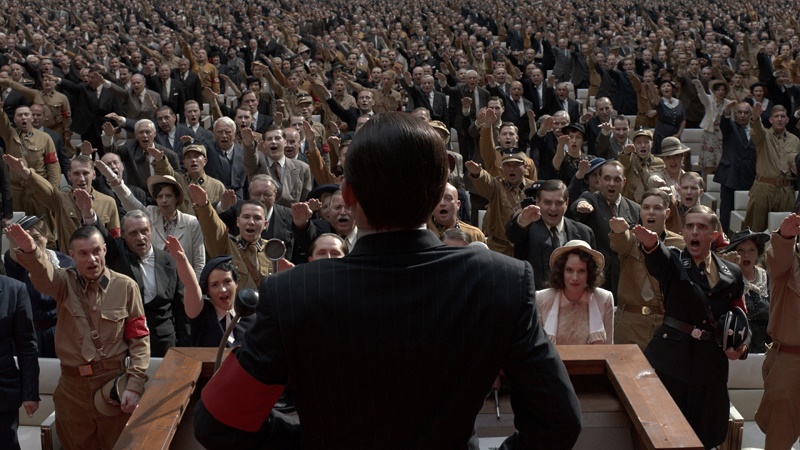
Somehow, whether it be the intelligence she said he had, or the power, or simply that he had a certain way of loving her, she eventually gives herself to him.
In the above scene, it’s as though he is hypnotizing her. She’s drunk on the fact that his desire is so strong that while he’s making an important political address, he caresses his face with her handkerchief. She denied hearing what was being said and just being fascinated with the realization that he was “a great actor”.
In reality, based on the biographies of her life, she herself went back from “having to do what you had to do”, to being madly in love, to never having slept with him. The fact is that no one will ever really know what really happened between them.
Love or lust, sex or seduction, power or control, dominance or submission. She once said that Magda proposed a ménage à trois. Maybe she was so sick of the questions probing her sexual life, she made things bigger or smaller than they even were. In one interview, she describes her relationship as a fatal passion where she was a victim. In another, she says it was a wonderful high to have a man of his power attracted to her. Other times, she explained that she actually fell in love with Goebbels love for her. And in most interviews after 1989 she repeated that they were not lovers at all.
The film paints a lurid affair with the devil and gives us no room for any other possibilities.
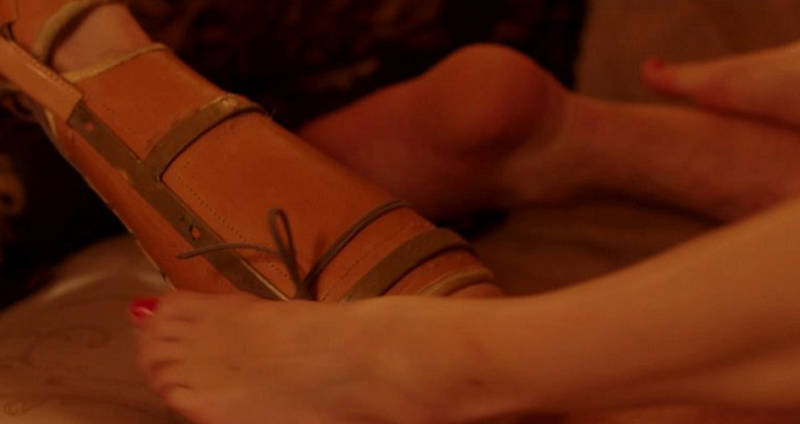
Photo: Julie Vrábelová
In the film, she gives up everything to be with this man. Her family and even her career, as she turned down MGM Studios choosing to remain a German star.
“She turned down Hollywood to be Goebbels’s Lover” is what it says on the US release DVD cover.
Sensationalism sells.
Maybe she gave up everything to be a star. Maybe she believed UFA was bigger than Hollywood. Maybe Goebbels had nothing to do with her decision. Or maybe he did, but not in the way the film wants us to believe.
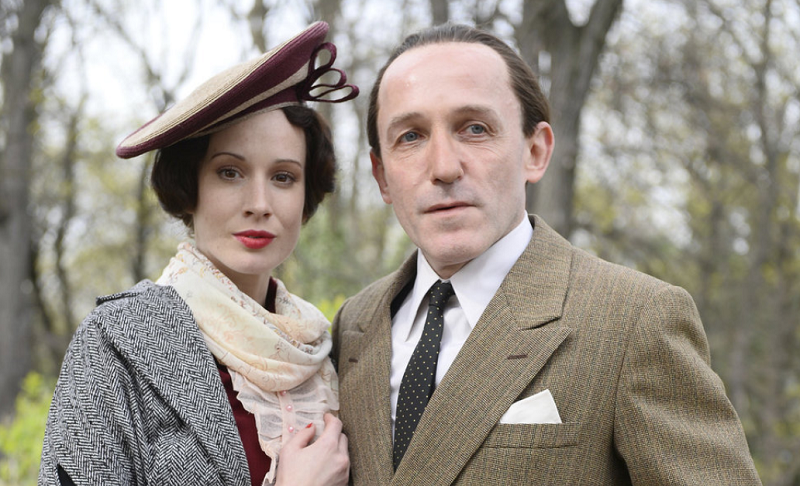
Photo: Martin Sekanina
In reality, Lída received several job offers from Hollywood studios, but it’s believed she turned them all down under pressure from the Nazi authorities. According to her biographer, Josef Škvorecký, she later regretted not taking the first offer, but at the time she believed she would have gone to Hollywood an unknown whereas in Germany, she was already rising as a star. Remember, UFA was the “Hollywood” of all of Europe.
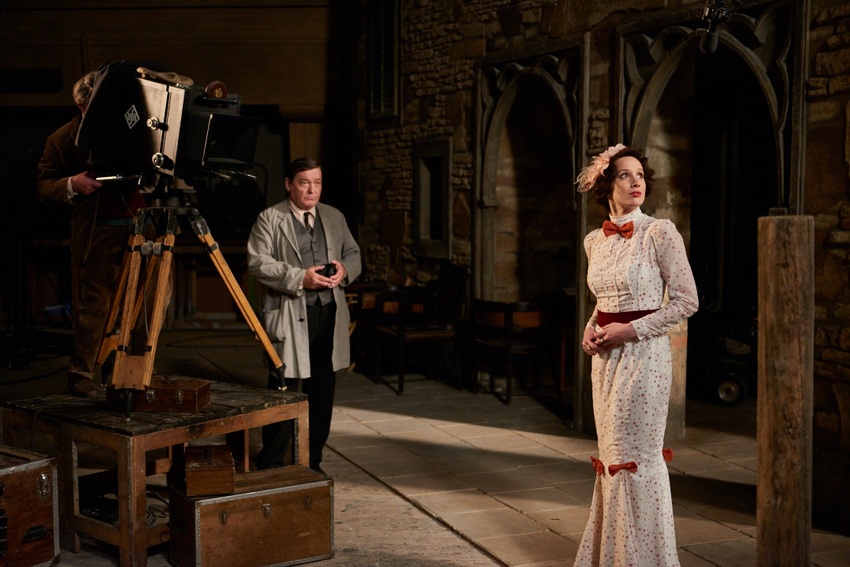
Photo: Julie Vrabelová
In the film, Goebbels tells Lída that he has confessed to his wife, and he wants the two women to meet. Magda is clearly distraught when get introduced, and hints and her distaste for sharing her husband. “I am the mother of his children, I am only interested in this house in which we live,” she said. “What happens outside does not concern me. But you must promise me one thing: you must not have a child by him.”
Lída wants to run out of the house hearing that, but Goebbels appears with two little boxes, each a piece of jewelry for both women as if to cement the love triangle.
Hitler is then later visited by Magda Goebbels who begs him to stop the scandalous affair.
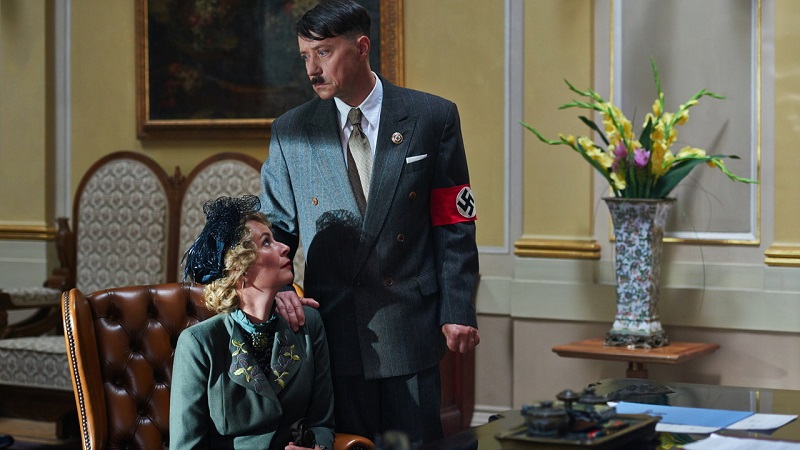
Photo: Julie Vrabelová
Magda knows that Hitler has a vision of what the ideal German family looks like, and it does not include a married man and father, his Reich Minister of Propaganda, to be openly galavanting around with an actress, especially a Czech one.
On 16 August 1938, Hitler intervened and rebuked his minister, stating that in view of his “perfect marriage” as well as the coming annexation of the Sudetenland, his affair with a Czech actress was an impossibility.
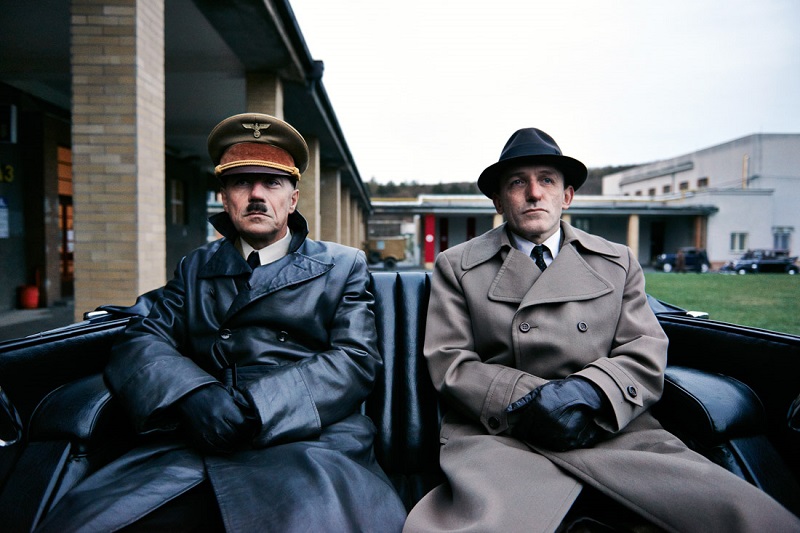
Photo: Julie Vrabelová
At first Goebbels protests, and threatens to resign, but Hitler has made up his mind. There will be no divorce.
He is forbidden to see Lída.
“My wife is a devil,” he tells Baarová.
We then get to watch a snively and broken Goebbels cry and whine on the phone telling her he can never see her again.
Lída is then immediately prohibited to play in any German movies and she is not allowed to leave Germany. In reality, Baarová was told by the Berlin chief of police Wolf-Heinrich von Helldorff, that she had to quit her relationship with Goebbels immediately and was prohibited from performing on Hitler’s direct order.
There is a scene where she walks in front of the train, and is rescued by a young man who worked in the studio and is also a fan.
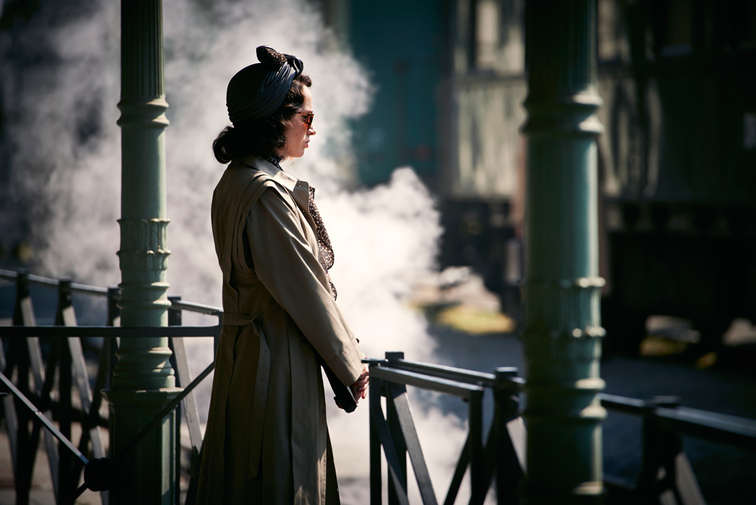
In the film, on the evening of the terrible Kristallnacht in 1938, she manages to escape back to her homeland. (Kristallnacht is called Crystal Night or Night of Broken Glass occurred on the night of November 9–10, 1938, when German Nazis attacked Jewish persons and property.) She looks shocked and surprised to see the barbaric violence on the streets.
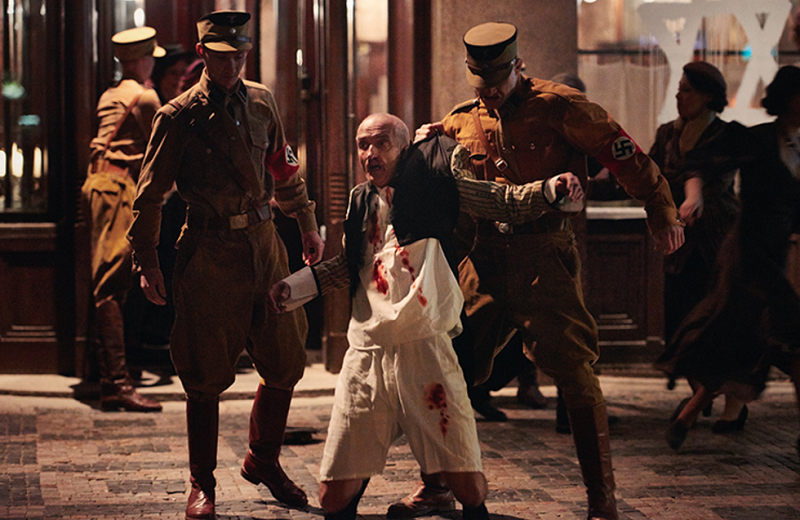
Photo: Julie Vrabelová
Did she really not know what was going on all around her?
How could she not know?
In reality, she was followed by the Gestapo wherever she went, ordered by Helldorf to stop making public appearances, and pressed by her friends, so in the winter of 1938-39, Baarová fled back to Prague.
But after the German occupation of Czechoslovakia from the Nazis, she flees again. When the war ends, she returns. full of hope for the liberation of Prague. Yet the only thing awaiting her is ridicule and humiliation from her close friends, the actresses who have envied her recent success in Germany.
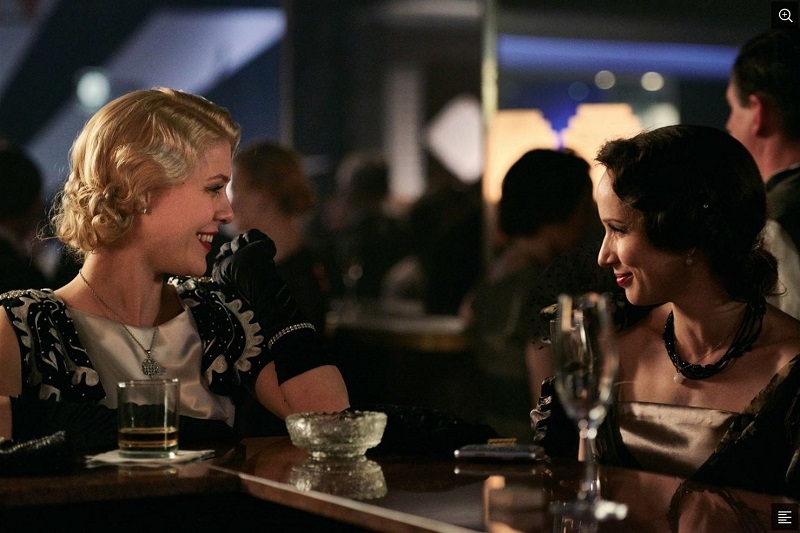
Her relationship is also strained with her mother, who is in denial of what’s happened, and her sister Zorka, who cannot believe that she was involved with such a monster as Goebbels. The sweetness that passed between them at the beginning of the film, now gone.
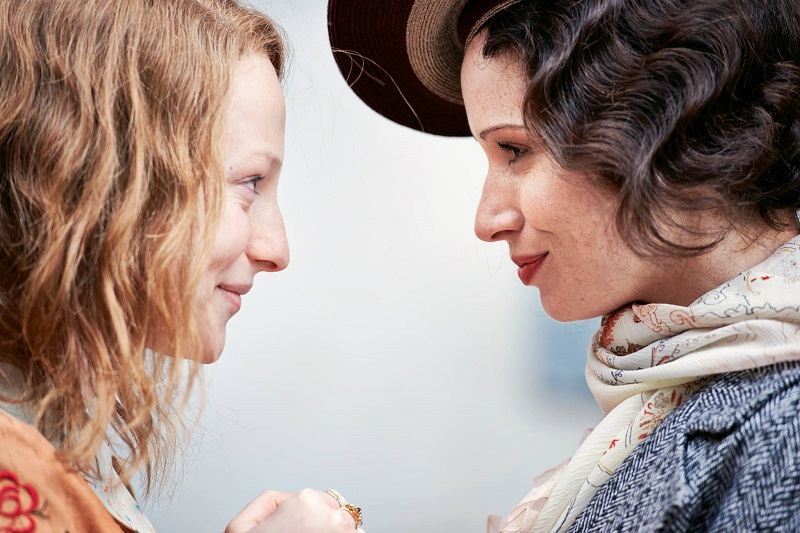
Soon she’s placed under arrest as a Nazi collaborator.
We then painfully witness the victimization of her entire family who pay for her crimes. Her mother dies of a heart attack during an interrogation. Shortly after that, her only sister Zorka – a regional actress whose career was ruined after the war because of her sister’s relationships – commits suicide by jumping to her death. Her father willingly has his leg amputated so that he does not have to lay in bed rest at the hospital for months fighting an infection – months he spends instead, fighting for her freedom.
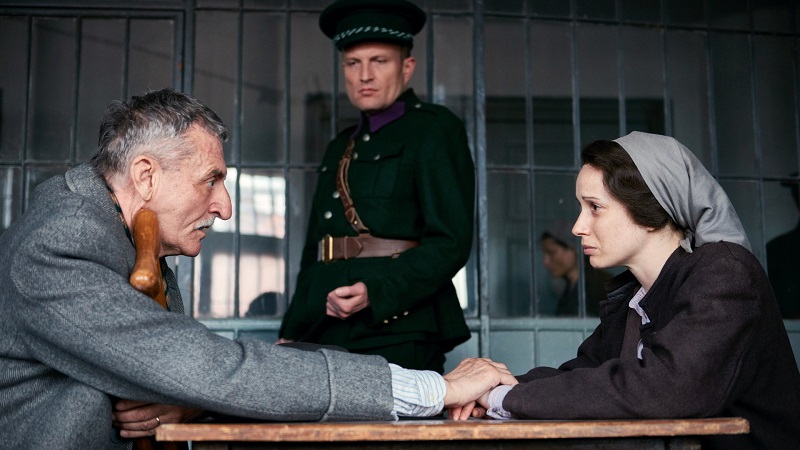
Photo: Julie Vrabelová
Everyone believes she will be sent to the gallows and hung for her crime of treason. She stands in line with several of her fellow prisoners, waiting to be executed when at that exact moment, someone brings a letter from the Czechoslovak minister and she is told she has been pardoned.
In reality, her father managed to reach Mr. Prokop Drtina, the non-communist justice minister in the pre-totalitarian era (1945-1948, the “Third Republic”), and it was Drtina who succeeded in freeing Baarová.
After 14 years in preparation, Filip Renč’s highly anticipated Lída Baarová about the famous Czech actress and her relationship with Joseph Goebbels, began shooting in March 2015. It was released in 2016 to mixed reviews.
Slovak actress Tatiana Pauhofová (Shooting Star at 2007 Berlinale, nomination as best actress for Burning Bush in 2013) played the main character with Austrian actor Karl Markovics (The Counterfeiters, The Grand Budapest Hotel) played Joseph Goebbels. German actor Gedeon Burkhard (Inglourious Basterds) played Lída Baarová’s partner, actor Gustav Fröhlich.
So was this film a true story? A love story?
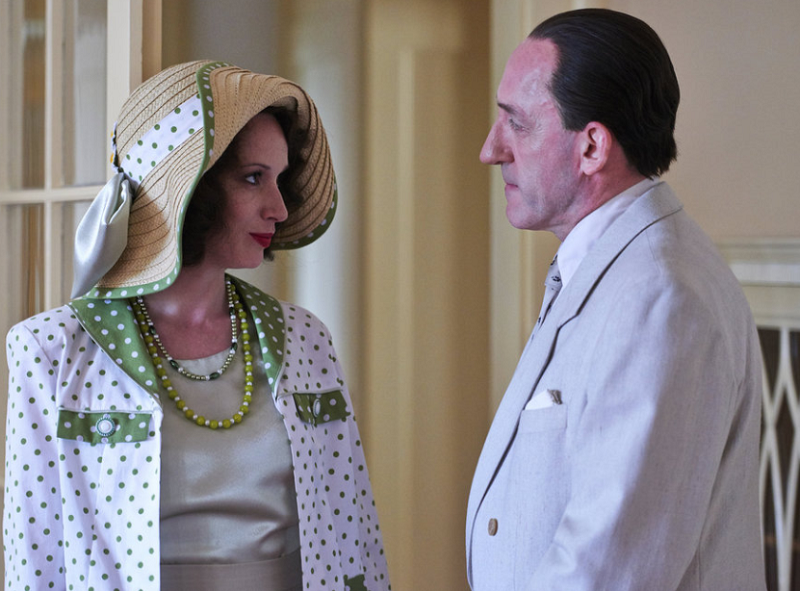
Photo: Julie Vrabelová
Czech Film Center states, “One of the greatest untold love stories of the 20th century, this is the story of Lída Baarová, a beautiful Czech actress, who conquered Germany’s silver screen as well as the heart of one of the Third Reich’s most powerful men: the Minister of Propaganda, Joseph Goebbels. How could Hitler’s chief ideologist fall in love with a non-Aryan Slavic beauty whose race had been designated as inferior by the Führer in Mein Kampf and whose country was soon to be occupied by the Nazis? How could one of Europe’s most glamorous actresses reject offers of stardom from Hollywood in preference to a dangerous romance with the Nazi monster with a deformed leg? The movie will shatter taboos and probe the thin red line between demonic ideology and passions of the heart.”
British historian David Irving interviewed Baarová in 1993, for his biography Goebbels: Mastermind of the Third Reich, he wrote what Lída told him in the interview, that it began when they had driven out to the cottage he built for her on a lakeside near Berlin. He played the piano, and she lay on a couch listening to his music and reading all evening. The manservant fixed a simple meal for them. In the morning – they slept in different rooms, she confirmed – the chauffeur would take them back to the city, she to the studios, he to the propaganda ministry. She could not recall how long they had been really intimate, whether it was weeks or months or days. She seemed forgetful rather than evasive. Right at the end, I asked a question which just occurred to me.
“Didn’t his leg brace bother you, when you were making love?” I asked. The minister had a deformed foot, and he wore a steel and leather leg brace almost all the time.
“Leg brace?” she asked in astonishment.
She had never seen one.
In a way, that provided all the answer that I needed.
Of course, David Irving is as hated as Lída Baarová (if not more) for much of what he has written.
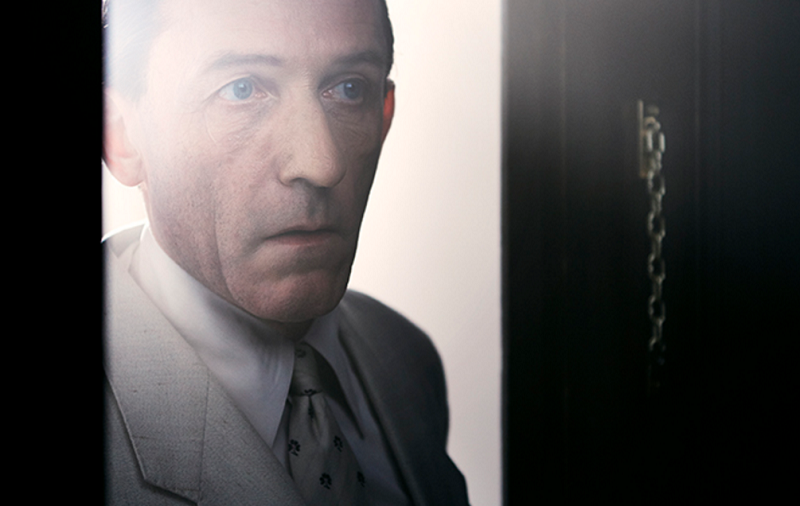
Photo: Julie Vrabelová
What bothered me by the end of the film was that her character had this smug look about her the entire film, an arrogance and ambition which no one knows was really there. Did she want to be a world known actress? Yes. Did she believe that she was in the circles of power? Yes.
But that doesn’t mean that the writer should assume that on her last days, as she sat alone on the threshold of death, that she was waiting for Goebbels to come and turn out the light.
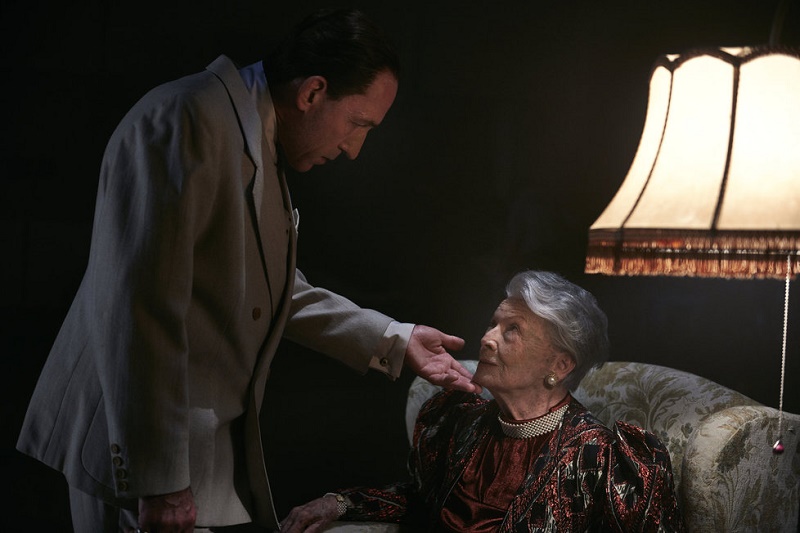
Photo: Julie Vrabelová
For that reason, it was a bit over the top for me.
I resented how the film played the all knowing judge and portrayed her the way it did. It did not offer the audience enough space to make one’s own decision. Instead it led and guided us to have a specific belief and opinion.
In the film, the PhD student says that she was planning to write a clear thesis about evil, but by the end of hearing her story, she has to admit to herself that things are not as simple as they seem.
They never are.
While the aim was to make you think about the different ethical and moral issues. I feel it failed in that aspect. It didn’t give us enough character in Lída to make us want to understand her or even forgive her. The portrayal instead gave us a woman we should hate, one we are supposed to hate.
It was a mob mentality that allowed Hitler to rise in the first place, and it was the same kind of mob mentality that judged her entire life and pushed her sister to suicide. I am not condoning her affair (if there even was one), yet I do know that her affair is none of my business. She already paid dearly for her foolish decisions, the mistakes of youth, and being influenced by the people in power.
When I read that the writer spent 15 years on the material, it only made me more disappointed with the film because the way she was portrayed, it was as though it was validation for the same hating mob that spent a lifetime condemning her. I would have enjoyed more of a human study of how someone can be attracted to a complex evil, the moral sacrifices that sometimes come with ambition, the weight of our choices, and where our own integrity meter lies as we navigate through this thing called life.
One cannot deny that a relationship exists between light and dark, good and evil, love and hate as much as it can exist between love, power, egotism, jealousy, envy and lust. There is good and bad in all of us and oftentimes, the power of the opposite is what leads us directly into fire.
By the end of the film, I felt the most sorry for those closest to Lída, those who gave the ultimate sacrifice and ultimately were punished by the choices she had made. Punished for standing by her, knowing her, loving her.
I felt a sadness for Lída whose life’s work gave us 60+ films. Each one of them overshadowed based on the mistake of a young 20 year old girl. She was a wonderful talent and a beautiful woman who was cursed and hated for being ambitious, talented and strong enough to keep going even after everyone wanted to destroy her. Not only did she lose those closest to her, spend time in prison and was shunned for 60+ years, but she died alone – and even 15+ years after her death the “mob” creates a film such as this, guiding the audience to hate her even after she’s long gone.
…As if Goebbels himself stepped out of hell to come and court her once again.
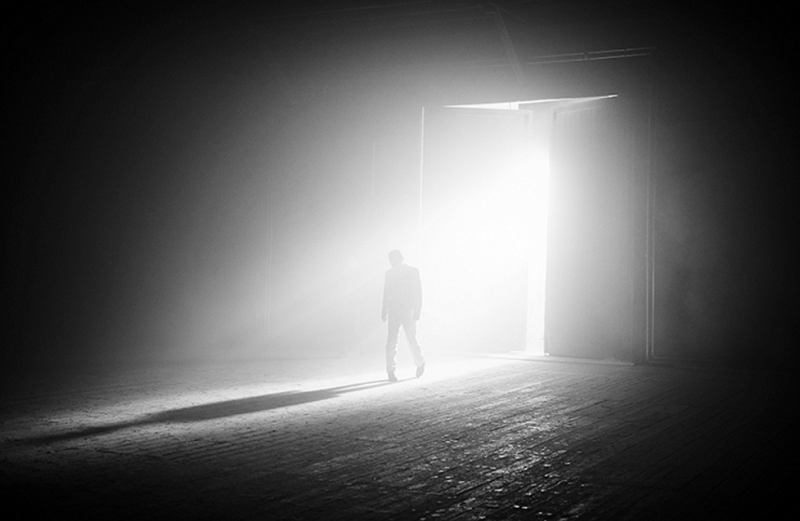
Photo: Julie Vrabelová
Perhaps his hold on her was eternal after all.
Perhaps this is what they call Karma.
You decide…
The trailers for the film:
Lucie Bílá’s 1930s-style song which was shot to promote the movie, Když tančí ďábel s andělem or in English, When the Angel Dances with the Devil.
Finally, here is the short movie about the movie…
Lída Baarová will forever remain in history as the Czech beauty who became one of the most renowned actresses in the German Reich. But more than that, she’ll forever be connected to Goebbels. Click here for a rare photo of the real Lída Baarová with her partner, German actor Gustav Frölich and Joseph Goebbels.
Her last years were much like the rest of her life, sad. She existed in complete solitude, drowning herself in alcohol. She suffered from various diseases, nerve problems, had Parkinson’s disease and eventually became incapacitated. She died on October 27, 2000, at the age of 86 in Salzburg. She was alone. Her funeral was held in January 2001 at Strašnice crematorium in Prague.
The film was directed by Filip Renč and written by Ivan Hubač. Made in the Czech Republic, 2016, 106 min., Czech and German w/ English subtitles.
You can purchase a copy by clicking here.
There is an excellent (Czech audio, English Text) interview about Lída here.
You can also watch a very good interview about her in Czech, here.
Sources: Czech Film Center, Global Screen, Film New Europe, Blesk, SMS, Novinky, Blesk, Julie Vrabelová.
Thank you in advance for your support…
We know that you could spend hours, days, weeks and months finding some of this information yourselves – but at this website, we curate the best of what we find for you and place it easily and conveniently into one place. Please take a moment today to recognize our efforts and make a donation towards the operational costs of this site – your support keeps the site alive and keeps us searching for the best of our heritage to bring to you.
Remember, we rely solely on your donations to keep the project going.
We appreciate you more than you know!
If you have not already subscribed to get TresBohemes.com delivered to your inbox, please use the form below now so you never miss another post.

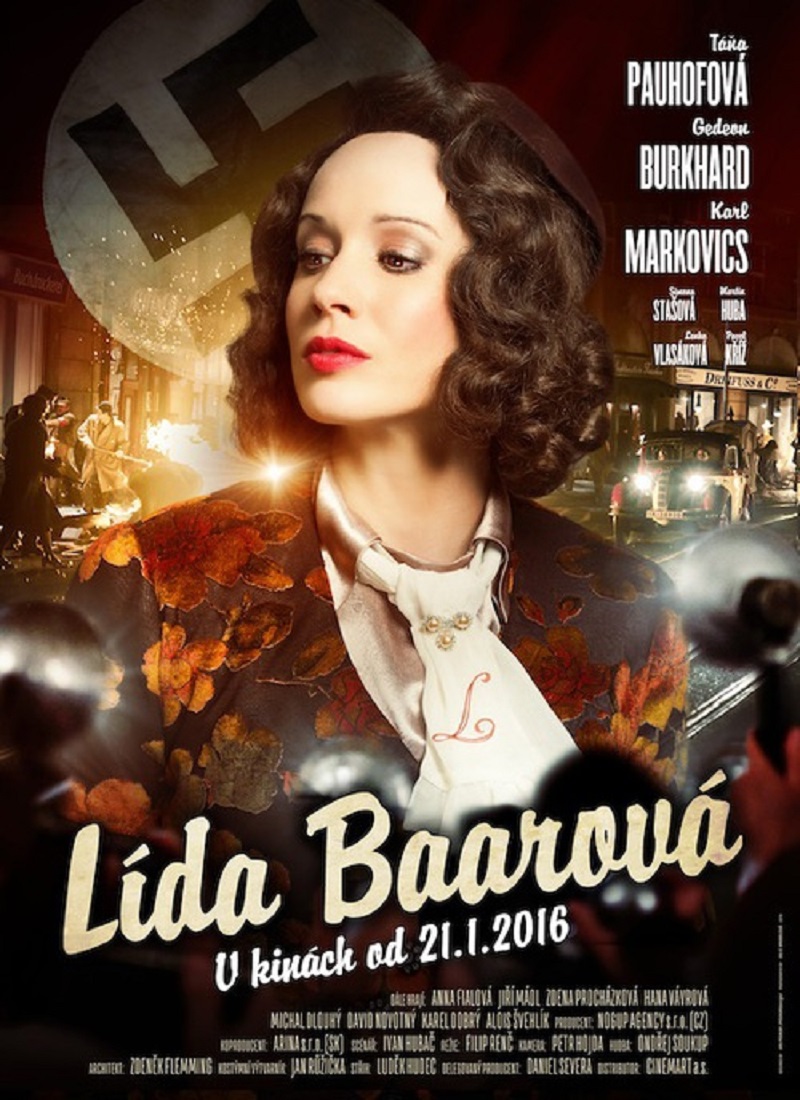
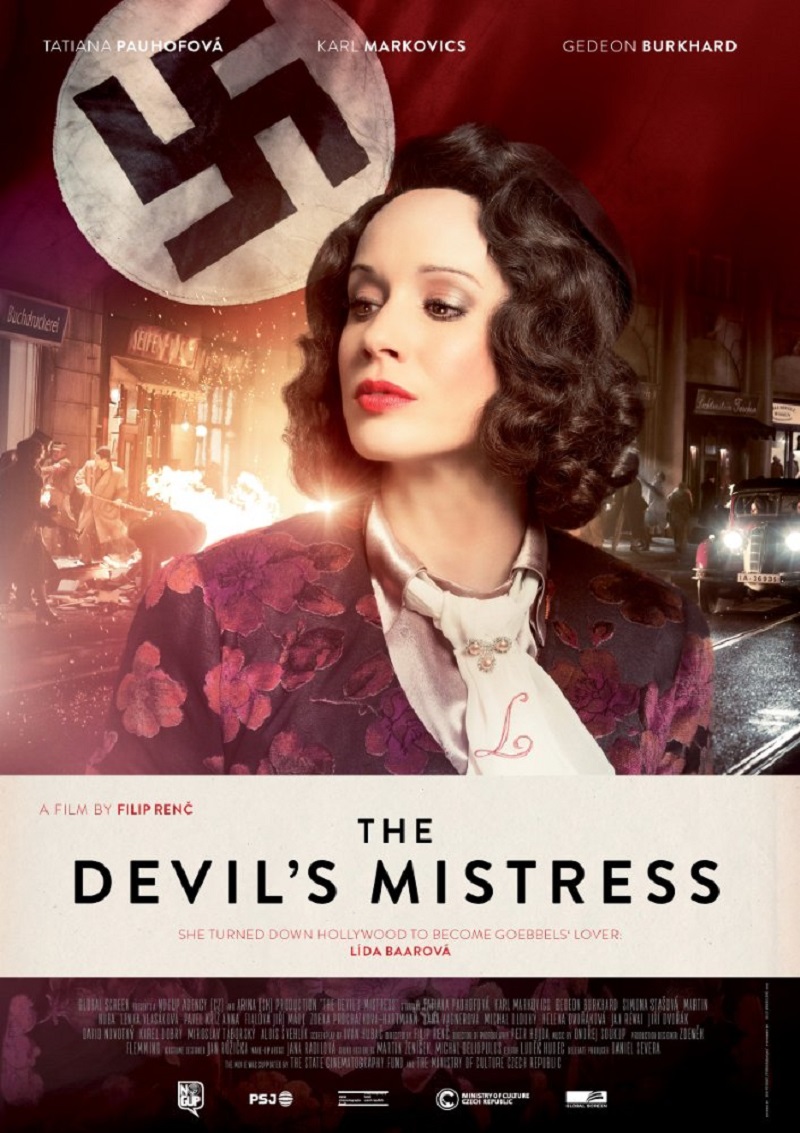





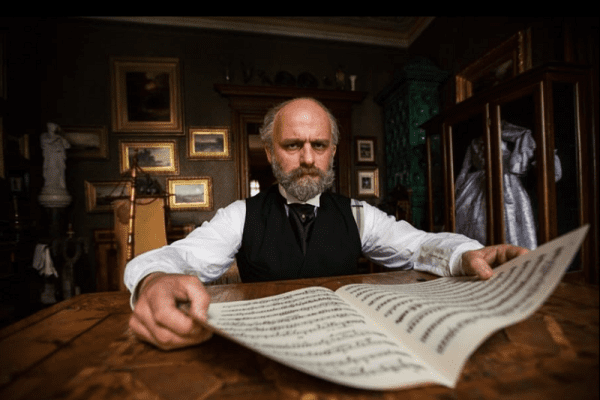















I liked this film. It was an interesting story about a horrible time in the world.
Thanks for sharing the information about Lida. So many Czechs hated her, but I always enjoyed her acting. I think she was a young girl who got caught up in things she didn’t fully understand until much later in her life.
I enjoyed this film. I also recommend Burning Bush, about the personal sacrifice of a Prague history student, Jan Palach, who set himself on fire in Prague in protest against the August 1968 invasion of Czechoslovakia by Warsaw Pact troops.
I enjoyed the movie. I just don’t understand how one of Europe’s most glamorous actresses at the time rejected offers of stardom from Hollywood in preference to a dangerous romance with the disgusting Nazi monster with a deformed leg? I love movies from this time period and I think they did a good job with it. I just can’t relate in any way to a love relationship with a sadistic demon of a man.